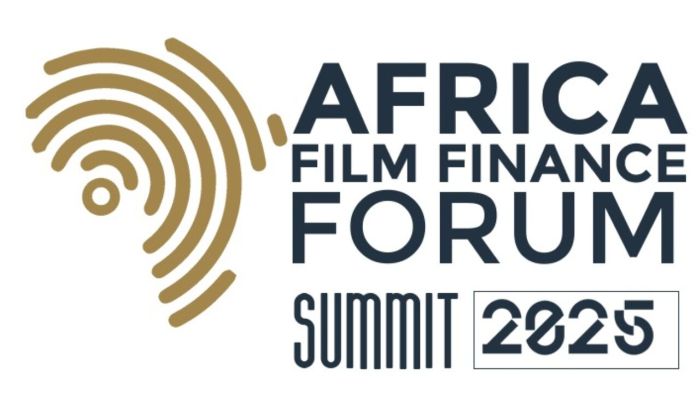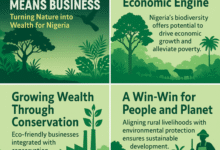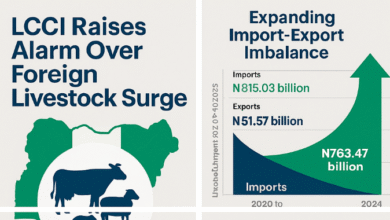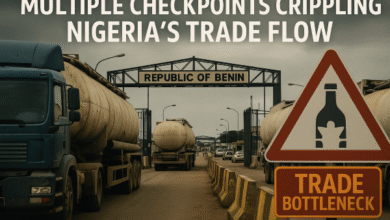AFFF Sets Bold Agenda to Transform African Film into $20bn Industry

A bold new initiative is underway to reimagine Africa’s film industry not merely as a cultural expression but as a structured, high-growth economic sector worth over $20 billion. The Africa Film Finance Forum (AFFF), a pan-African platform for creative capital development, has announced its plan to unlock this potential by industrialising the continent’s fragmented but vibrant film economy.
The forum, themed “Pan-African Film Economy: Building a $20 Billion Industry for 1.4 Billion People,” is scheduled for September 16–18, 2025, in Lagos. Convened by renowned film finance advocate and marketing strategist Mary Ephraim-Egbas, AFFF aims to confront the chronic undercapitalisation and informality that have long stunted the African film sector’s commercial growth.
From Culture to Capital
“Storytelling began in Africa,” said Ephraim-Egbas in a statement released Wednesday. “Our stories have shaped civilizations, inspired movements and connected communities. Yet, despite this legacy, Africa’s film economy remains undercapitalised and informal.”
Ephraim-Egbas argues that to compete globally, Africa must transition from just telling stories to fully monetising them by building a formal, structured film industry. That vision, she noted, demands robust pipelines that connect creative talent with finance, policy, platforms and global opportunities.
“AFFF is changing the narrative. We’re building bridges between creativity and capital, between local heritage and global markets,” she affirmed.
The $20 Billion Opportunity
For AFFF, this isn’t merely about producing more films—it’s about creating jobs, attracting capital, enabling exports, and strengthening the continent’s digital and cultural economy.
Bolaji Abimbola, Co-Chair of AFFF’s Public Relations and Strategic Communications Committee, highlighted the need to redefine film as infrastructure—strategic, economic, and creative. “Unlocking a $20 billion industry starts with recognising film’s economic architecture,” she said. “AFFF is designed to accelerate that shift, blending policy, financing, distribution and innovation into a cohesive growth ecosystem.”
Clarina De Freitas, Co-Chair of AFFF and a global media consultant, added: “Africa’s stories are our leverage—but only when matched with funding, distribution systems and institutional credibility. From informal video markets to cinematic releases and streaming platforms, the industry must be owned by Africans who understand the value of their narratives.”
Building a Film Economy for 1.4 Billion Africans
AFFF 2025 is expected to gather top-tier stakeholders across the creative and financial spectrum—including filmmakers, tech innovators, policymakers, fund managers, VCs, global distributors and regulators. The goal? To design sustainable value chains that turn storytelling into structured capital growth.
For a continent that contributes less than 1% to the global box office revenue despite accounting for over 16% of the world’s population, the opportunity for growth is massive.
In a digital-first world, African content has proven its global appeal—consider the meteoric rise of Nollywood, the breakout success of series like Queen Sono and Blood & Water, and the rising dominance of mobile-first streaming consumption. AFFF aims to move these scattered wins into a full-fledged economic system.
Why It Matters
Africa’s creative economy is fast emerging as a new frontier for economic diversification, youth employment, and international soft power. But the film sector—despite its cultural relevance—still suffers from a lack of financing structures, weak intellectual property enforcement, limited infrastructure, and patchy distribution networks.
AFFF intends to fix that through a multi-pronged strategy: financial innovation, pan-African co-production models, regional integration, and tech-enabled distribution. With the support of forward-thinking investors, development finance institutions and governments, the forum could catalyse a long-awaited revolution in Africa’s creative sector.
Bottom Line: If Africa can scale its storytelling into structured, cross-border industries with bankable pipelines and export-ready narratives, the continent may not just entertain the world—it may economically transform it.











